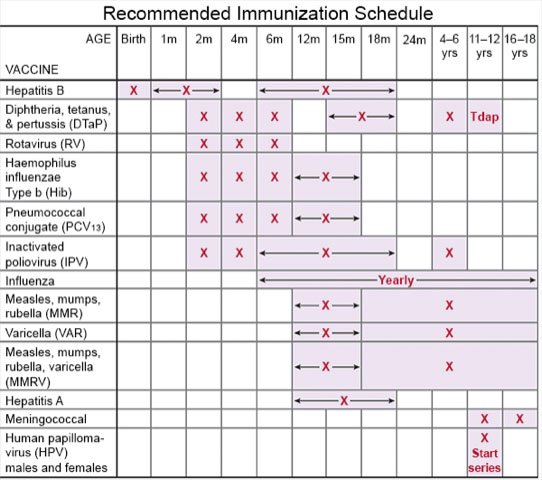Fetal Alcohol Syndrome
Medically reviewed by Drugs.com. Last updated on Aug 4, 2025.
Fetal alcohol syndrome (FAS) is a group of health problems that a child is born with. It can happen to any child whose mother drinks alcohol while she is pregnant. All types of alcohol can harm an unborn baby. A child with FAS may have mental, behavioral, emotional, or developmental problems. He or she may also have growth or other physical problems, such as bone or organ development. FAS cannot be cured, but it can be prevented by not drinking alcohol during pregnancy.
DISCHARGE INSTRUCTIONS:
Call your child's doctor if:
- You are having problems feeding your child and you feel he or she is not eating enough.
- Your child has a fever.
- Your child is short of breath when he or she is lying down or during exercise or activities. Your child's lips and fingernails may also turn blue.
- You have questions or concerns about your child's condition or care.
Problems that may develop:
- Fussiness and sleep problems are common in babies. It may be hard to soothe or calm your baby. He or she may have trouble falling or staying asleep.
- Milestones may happen later than for other children at the same age. Your baby may roll over, crawl, and walk later than other children. He or she may not learn to talk as soon as other children.
- Infections such as urinary tract or ear infections may develop often.
- Eating problems may develop right away or over time. Your baby may have problems eating and gaining weight. Your child may only like to eat small amounts of food at a time. He or she may be bothered by the way certain foods feel in his or her mouth. He or she may not like certain temperatures like hot or very cold foods.
- Learning and behavior problems may develop when your child stars school. He or she may have problems sitting still and paying attention in school. He or she may feel anxious or frustrated in school because thinking and learning is difficult. He or she may have trouble meeting and keeping friends.
- Hearing problems can affect your child's ability to learn when he or she starts school.
- Emotional problems are common in children with FAS. Your child may get upset very easily.
If your baby is fussy and has trouble sleeping:
Some babies are calmed by movement. Others need to be kept still and quiet. Find out what calms your baby. The following may be helpful:
- Ask healthcare providers what they did to calm your baby. Talk with them before you take your baby home from the hospital.
- Block out noises that may bother or wake your baby. When your baby is trying to go to sleep, play soft music, or sing softly. A fan or humidifier can create a low steady noise that he or she may also find comforting. Dim the lights in the room if your baby is bothered by the light.
- Try movement to calm your baby. Try putting your baby in an automatic swing or sitting with him or her in a rocking chair. Never shake your baby. You may cause brain damage if you shake him or her.
- Put your baby in a safe place if you need a break. Ask a family member or friend to hold your baby. If no one can help, gently place your baby in his or her crib and leave the room for 5 or 10 minutes. Then go back and try to comfort him or her again.
- Use a light blanket to swaddle (wrap) your baby snugly. Your baby's healthcare provider can show you how to swaddle him or her if you do not know how. Do not wrap your baby too tightly.

How to feed your baby:
Ask your baby's healthcare provider what type of formula your baby should drink and how much he or she should drink each day. If you are breastfeeding, ask how long and how often you should breastfeed. Feeding times may be difficult for your baby. The following tips may help:
- Try to make your baby more comfortable. If your baby cannot feed well with noise or light, dim the lights. Feed your baby in a quiet place.
- Keep your baby's head propped up during the feeding. This position can help him or her feed more easily. It may also help if your baby gulps or chokes often.
- Give your baby small feedings often. If he or she becomes very upset and fussy, stop the feeding. Help him or her calm down and relax. Then continue the feeding.
- Teach another family member or friend how to feed your baby. This will allow you to have time to relax and rest if feeding times are difficult.
How to care for your child:
- Be supportive. Your child may have emotional outbursts, or trouble paying attention. Stay calm. Help your child calm down.
- Work with your child at home. Help your child's body and mind develop by doing fun activities with him or her at home. Read books and sing to your child. Talk to your child and ask him or her to repeat your words back to you. Do physical activities that provide exercise for your child.
- Work with your child's teachers and school officials. Ask about specially trained healthcare providers and learning programs to help your child.
- Set simple rules and a daily routine. This will help keep your child calm and help him or her feel secure. Provide a regular schedule of activities that he or she can expect each day. Your child may get upset when he or she goes to new places. Before you take your child to a new place, talk to him or her about the new place. For example, tell your child about his or her dentist and medical visits before you go. This will help your child know what to expect when he or she arrives. He or she may feel less frightened or anxious.
- Keep all medical appointments. If you must miss an appointment, call to reschedule it. During regular visits, healthcare providers look for problems that may cause your child to have trouble growing and learning. Make sure your child's eyesight and hearing are checked often.
- Feed your child healthy foods. While your child is a baby, feed him or her breast milk or the formula recommended by healthcare providers. Offer your child foods from all of the food groups when he or she starts eating solid foods. Feed your child healthy foods in small amounts at the temperature he or she prefers. Try foods that are crunchy, mushy, chewy, or smooth.
- Ask about vaccines your child needs. Your child may get infections more easily. Vaccines help prevent infections that cause diseases such as measles, chickenpox, and influenza (the flu). Your child's healthcare provider will tell you which vaccines your child needs, and when he or she should get them.

Follow up with your child's doctor as directed:
Write down your questions so you remember to ask them during your visits.
For support and more information:
- National Organization on Fetal Alcohol Syndrome
1200 Eton Court, NW, Third Floor
Washington, DC , 20007
Phone: 1- 202 - 785-4585
Web Address: http://www.nofas.org
- Fetal Alcohol Spectrum Disorders (FASDs)
CDC, National Center on Birth Defects and Developmental Disabilities
1600 Clifton Rd, Mailstop E-86
Atlanta , GA 30333
Phone: 1- 800 - 232-4636
Web Address: https://www.cdc.gov/ncbddd/index.html
© Copyright Merative 2025 Information is for End User's use only and may not be sold, redistributed or otherwise used for commercial purposes.
The above information is an educational aid only. It is not intended as medical advice for individual conditions or treatments. Talk to your doctor, nurse or pharmacist before following any medical regimen to see if it is safe and effective for you.
Further information
Always consult your healthcare provider to ensure the information displayed on this page applies to your personal circumstances.
